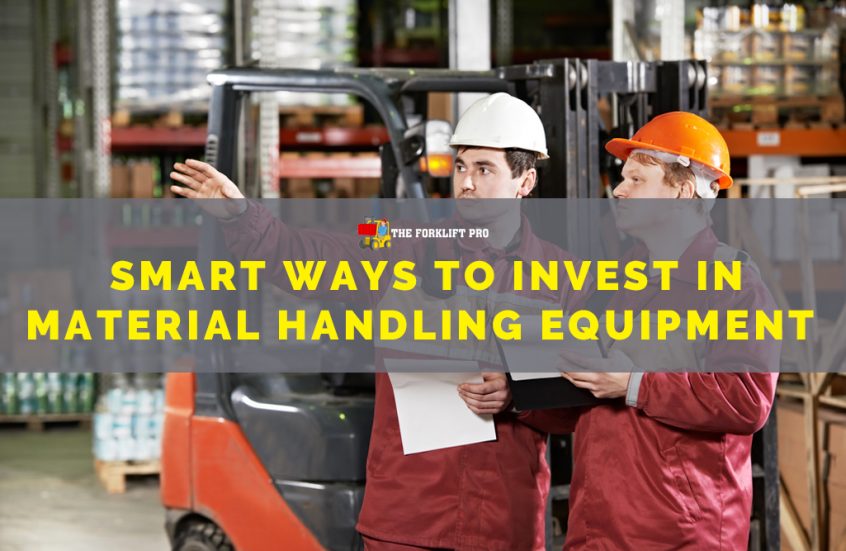Let’s face it: your business is constantly changing. While each day certainly brings its own challenges, your focus is probably more on the year-over-year variables such as growth, profitability, staffing, and capital investment. One of the most challenging decisions a business might face is when to invest in a new purchase (or perhaps when to opt for a lease in place of a purchase).
Obtaining new, or new-to-you, equipment for your business is a part of growth and operations. However, it is often hard for operations, equipment, and facility managers to ascertain the right moment to add to the business’s material handling equipment (MHE) inventory. On top of that, the process can be long and rather cumbersome; that’s why it is beneficial to find a company in the industry who has experience with all aspects of the buying and selling process and can give you the guidance, resources, and equipment you need to help your business grow. But, until you’ve found that relationship, following the steps below will set you up for a successful MHE investment.
Researching the Right MHE
When researching the right forklift for your business needs, you will need to identify and prioritize several variables, including the type of engine that is best for your situation. Should you obtain an internal combustion engine or an electric model? Some of the factors you should consider are the location the machine will be used in, the load capacity, and the height limit for your operation. You will also want to consider brand reputation (one example is Toyota), associated performance guarantees, and familiarity with equipment features.

Sourcing Your Equipment
After you’ve determined the type of equipment you need for your business, you then need to find a company you can trust to provide your MHE. You will want to learn about the company’s buying, inspection, and remarketing process. You will also want to know who you are purchasing machines from – being able to attach faces to your purchases will not only help you feel more comfortable with your investment, but it will help you hold the seller accountable for any guarantees put forward during the buying process. You should spend just as much time ensuring the company you buy from is reputable as you did researching the right pieces of MHE.

Financing Your Machines
To purchase or to lease? Once you’ve found your equipment, you must decide (and work with your source) to determine if a rental situation will be best or if you should make a capital investment. Material Handling & Logistics shares helpful information on helping to make the purchase vs. lease decision.

Purchase
If you decide a purchase is the right move for your business, there are many financing options available to you; however, you might find that it is more difficult to secure resources or loans. For this reason (among many others), some businesses decide to purchase used or off-lease equipment. MHE that has been remarketed may offer savings for your business, while still providing the equipment and quality assurance that you need. One of the other challenges to consider is how to recoup some of your capital investment – how do you offload your machines when your business outgrows them? (Hint: that’s when it’s time to use a firm that has experience in bulk purchasing.)
Lease
There are many advantages to leasing equipment (lower upfront costs, adding stability to uncertainty, maintaining financial flexibility). However, leased machines, by definition, will have a limited time period of usefulness to the business. Your operations manager will need to learn new equipment at the end of the lease, as well as deal with any lease return scenarios, inspections, or requirements.
When your business’ growth calls for an expansion of your equipment inventory, there are many factors your have to consider in the process. Building a relationship with a reputable company who deals with both buying and selling is your best bet. Until you have found that relationship, following the steps outlined above will help set you on the right track for smart MHE investments.

